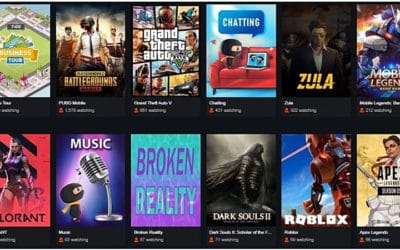Hello, February! Isn’t it amazing, we’re in the love month already and before you know it, it’ll be Crowdsourcing Week Global 2016! We scooped good reads for the weekend – stories on Blockchain, crowdsourcing, governments and more. Check out our curated weekly roundup of the breaking news and must-read thought leadership pieces on the crowd economy spotted by the Crowdsourcing Week team.
The state of Bitcoin & blockchain in 2016
If you think Bitcoin is dead, think again. According to a recent report released by CoinDesk, people are using it more than ever. However, though there are “big challenges” for public Blockchain, it looks like the technology itself will be a buzzword this year. What do you think?
The major story from 2015 is undoubtedly the increasing focus on bitcoin’s underlying technology, commonly referred to as blockchain or distributed ledger technology (DLT). Many parties, from government authorities to financial institutions, began to examine potential applications of DLT for securities transaction settlement and other use cases. Meanwhile, bitcoin’s price and exchange trading volume bounced back strongly after a gloomy first half of the year.
5 ways tech is crowdsourcing women’s empowerment
Technology provides a voice to women via crowdsourced data. Here’s a good read on The Guardian on how crowdsourcing is being used around the world to tackle women’s rights issues.
Around the world, women’s rights advocates are crowdsourcing their own data rather than relying on institutional datasets. Citizen-generated data is especially important for women’s rights issues. In many countries the lack of women in positions of institutional power, combined with slow, bureaucratic systems and a lack of prioritisation of women’s rights issues means data isn’t gathered on relevant topics, let alone appropriately responded to by the state. Even when data is gathered by institutions, societal pressures may mean it remains inadequate. In the case of gender-based violence, for instance, women often suffer in silence, worrying nobody will believe them or that they will be blamed. Providing a way for women to contribute data anonymously or, if they so choose, with their own details, can be key to documenting violence and understanding the scale of a problem, and thus deciding upon appropriate responses.
Millennials are inherently embracing crowd economy
Millennials (those aged 18-34) have different consumption habits – more than tangible things, they value experiences and are voracious adopters of crowd economy platforms, which are mostly mobile-based. Shopping is on the go via mobile phones and also other external channels. “Crowdsourcing will become a ‘two-way street.” Here’s a comprehensive read on three big consumer trends in 2016.
In 2016, reviews will become a two-way street with apps such as Uber—whichnow requires drivers to rate their riders—will influence (or deter) even the most savvy consumer. This new world of reverse ratings, where those providing the service rate those paying for the service, can already be a jarring experience.But it’s not hard to imagine a world in which every action we take is subject to review by others and made publicly available. Beyond reviews, in 2016 crowdsourcing will continue to drive user-driven movements in a blink of an eye. From Kickstarter campaigns to Change.org petitions to movements that appear out of nowhere, the potential for social media to drive fast-paced, almost mob-like behavior will only continue to grow.’
How Chancellor George Osborne is using crowdsourcing to engage with citizens
Chancellor George Osborne is crowdsourcing ideas to shape Government’s 2016 budget. This is one of the myriad ways to use crowdsourcing to scout for ideas. Here’s the whole story via The Independent.
The Treasury wants people to submit their own ideas about how they should be taxed and how Government money should be spent. A Survey Monkey site asks users to send one or two issues that are important to them and an explanation of why the proposal should be considered in a short, concise format. The website is open until January 29, 2016. The proposals are then considered ahead of the Budget announcement on March 16, 2016. Details on the contents of the Budget are so far scant, but pension tax relief is expected to take a hit, especially for higher earners.
What’s the secret of these 5 Hottest American businesses?
Here’s a rundown of the top 5 hottest American businesses, one of them 99Designs, topped the chart, an online crowdsourcing graphic design marketplace. The secret why it’s thriving? It’s a crowd-based business model. Read more via Forbes.
99Designs, a popular online crowdsourcing graphic design marketplace has made its top predictions for this year. Since the marketplace helps businesses get fresh logos and brand identity from professional designers, it has been able to see the industries where most demand is coming from. The insights from the infographic are based on the number of contests launched from America and compares what was big back in 2013. Interestingly, it has also been able to monitor the changing trends in design style. To date, over 480,000 contests have been launched on 99Designs and 2015 was the peak. If you’re looking to refresh your logo and brand design, 99Designs has identified some trends to consider. Since 2013, logos have become much simpler, cleaner and adaptable.
Crowdfunding a viable option for SMEs despite slow economy in Asia
Despite the slow economy in Asia, crowdfunding remains a viable option for SMEs when raising capital. Banks are now cautious in loan processing, yet the crowd’s capital provides lenient access to the crowd itself. Here’s the whole story via Straits Times.
“A lot of people ask, ‘Isn’t it going to be a lot worse for you (with the economic slowdown)?'” said Mr Benjamin Twoon, the Indonesia country director at crowdfunding start-up Fundnel. “But, in fact, this is where the opportunity is because we are becoming extremely relevant to people who cannot access traditional forms of financing. It’s a need versus a want – we are becoming more and more of a need rather than a ‘good to have’. Fundnel is one of several crowdfunding firms that have launched in Singapore over the past 12 months. Since its platform went live in October, it has completed five transactions, helping companies to raise about US$5 million (S$7 million), and has 30 more deals in the works.
There are tons of fantastic stories out there. What else caught your eye this week? Did you come across some breaking news or a good thought piece?





0 Comments